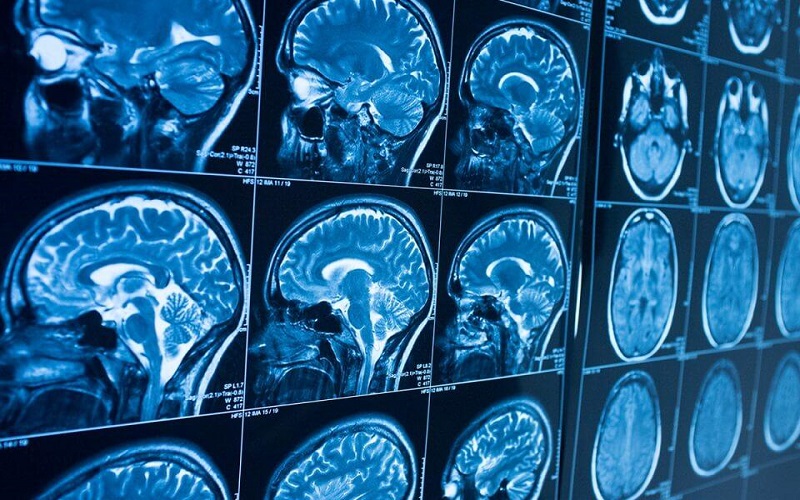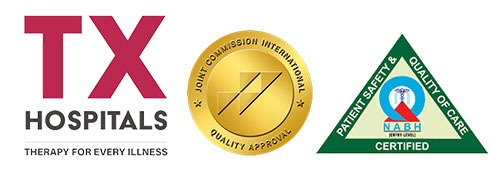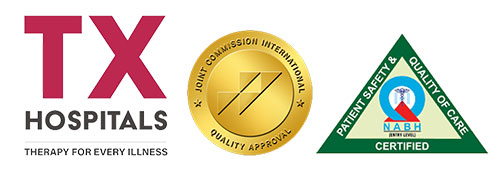Radiology
The Department of Radiology at TX Hospitals is a state-of-the-art diagnostic and interventional radiology facility that uses high-end imaging technology and robust interventional radiological procedure to diagnose and treat a wide range of vascular, neurological and other disorders.

Best radiology hospital in Uppal We provide round the clock diagnostic and therapeutic interventional radiology services as we have experienced and expert team of renowned radiologists, interventional radiologists, paediatric radiologists and neuroradiologists with all round radio diagnostic capabilities. A state-of-the-art centralized radiology department serves our purpose diligently.
TX Hospitals has centralized best radiology department in Kachiguda for both basic and specialized imaging services. Radiology unit is strategically located within close proximity to emergency department, surgical suites, outpatient zones and nursing units for the ease of patients. Close proximity to the emergency department ensures faster service to the patients who require emergency CT and MRI scanning.
Radiology unit provides the following services CT scan, MRI, DEXA scan, Ultrasound and colour Doppler, digital mammography and digital X-rays, PET CT scan and exclusive interventional radiology suite.
We implement standard risk management protocols and standard operating procedures to ensure safety of our patients from radiations, magnetic fields and contrast agents used in the procedures.
We ensure safe imaging for patients by adopting quality processes which are in the common management structure.
Diagnostic Radiology
Doctors and healthcare providers can see structures inside the body with the help of high-resolution images and interpret these images to know the cause of diseases. Our expert diagnostic radiologists are specialized in all the diagnostic and therapeutic radiology procedures. They use diagnostic images to pinpoint the cause of a disease and symptoms and diagnose the condition. Diagnostic radiology also helps in screening heart diseases, different types of cancers – such as breast, colon and cervical cancers. Diagnostic radiology is also helping in monitoring body’s response to certain treatments that a person receives owing to a particular condition.
The Most Common Diagnostic Radiology Exams TX Hospitals Provide include:
- Plain X-rays and Digital X-rays
- Magnetic resonance imaging (MRI) and magnetic resonance angiography (MRA)
- Mammography
- Computerized axial tomography (CAT) scan or CT Scans (computed tomography) including CT angiography
- Digital mammography
- PET Scan and PET CT when it is combined with CT.
- Nuclear medicine tests: Thyroid scans, bone scans and thallium cardiac stress test
Interventional Radiology Procedures
- Angiography or angioplasty and stent placement
- Embolization to control bleeding
- Uterine artery embolization
- Neuro-imaging – interventional radiology procedures
- Digital Subtraction Angiography (DSA)
- Carotid artery angioplasty and stenting
- Cerebral angiography
- Diagnostic spinal angiography
- Pain interventions
- Radiofrequency tumour ablation
- Radiofrequency tumour ablation
- Embolization of vascular malformations (head, neck, brain and spine)
- Embolization of intracranial and head & neck aneurysms
- Endovascular coiling
- Venous access catheter placement, such as ports and PICCs
- Stereotactic or ultrasound guided Breast biopsy
- Needle biopsies of different organs, such as the lungs and thyroid gland
- Vertebroplasty and kyphoplasty
- Spine biopsy
- Radiofrequency tumour ablation
- Microwave ablation
- Cryoablation
- Ultrasound guided Electroencephalography (EEG)
- Carotid ultrasound/Doppler scan
- Cancer treatments including tumor embolization using chemoembolization or Y-90 radioembolization







